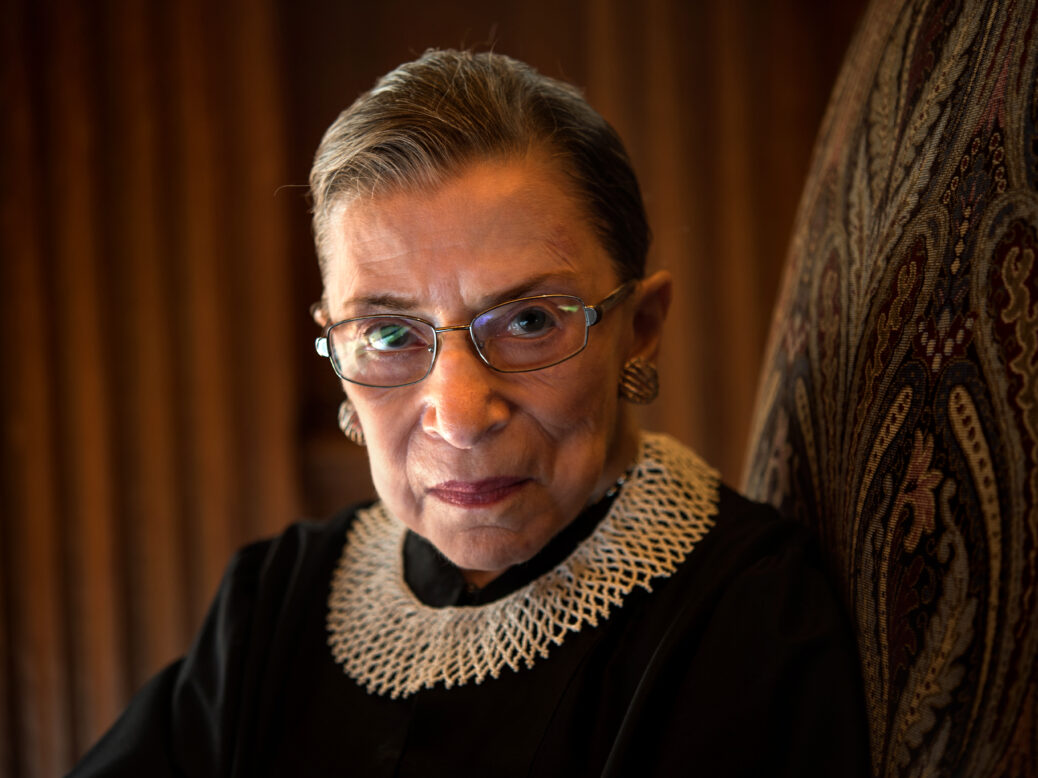
When I was eight years old, I dressed up as Ruth Bader Ginsburg for a school biography project. She had been appointed to the Supreme Court just five years before, the second woman ever in history to hold the position. Later, during the period of my youth in which I thought I was going to be a lawyer, it was in part because I hoped that if I worked very hard and got very lucky I might clerk for her. She had made a career arguing for gender equality and, with quiet dignity, breaking down barriers in the legal field and in US politics as a woman, mother and Jewish person. Small in stature though she was, she was a giant.
I didn’t think about any of that when I heard that she had died at the age of 87 of complications with pancreatic cancer on Friday night (which, incidentally, was the first night of Rosh Hashanah, the Jewish new year). I thought about her empty seat.



